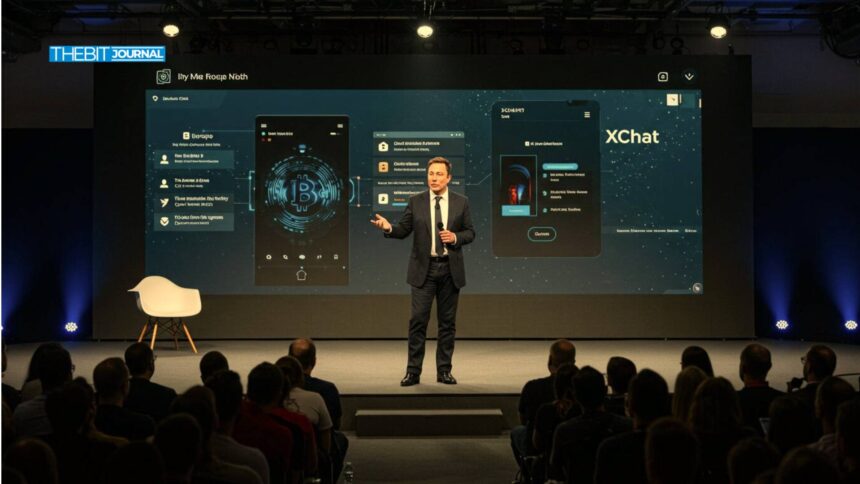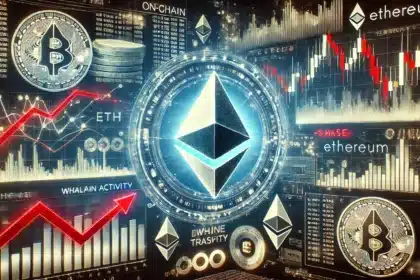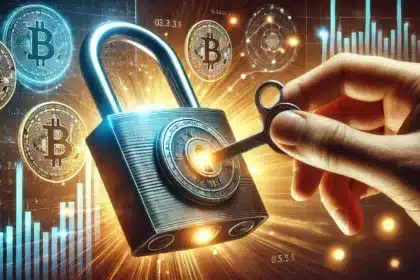Based on latest reports, Elon Musk has announced the launch of XChat, a new messaging feature within X (formerly Twitter), touted to offer heightened privacy and security through what he terms as “Bitcoin-style encryption”. While this claim has piqued the interest of some in the tech and crypto communities, industry experts are expressing strong skepticism.
Many are raising concerns about the technical accuracy of Musk’s claims, as well as the potential effectiveness of Elon Musk XChat’s promised security features.
What Exactly Is “Bitcoin-Style” Encryption?
The phrase “Bitcoin-style encryption” sounds futuristic and secure, but experts have swiftly pointed out that it may be more of a marketing buzzword than a reflection of any real encryption breakthrough. Bitcoin doesn’t actually use encryption to secure transactions. Instead, Bitcoin employs digital signatures, a cryptographic process that verifies transaction authenticity.
In simpler terms, transactions on the Bitcoin blockchain aren’t encrypted; they’re signed to prove legitimacy, with all data visible and unencrypted.
As Ian Miers, Assistant Professor of Computer Science at the University of Maryland, aptly explained on X:
“Bitcoin primarily uses signatures, not encryption. This is like saying, we decided to run our rocket on water, since NASA uses Hydrogen and Oxygen.”

In practice, Bitcoin’s transparency, where all data shared between nodes is unencrypted, is essential for its decentralized and open structure. This raises a fundamental question: How can a messaging app adopt “Bitcoin-style encryption” when Bitcoin’s architecture doesn’t actually encrypt data in the traditional sense?
The Technical Foundation: Rust Programming Language
Elon Musk XChat is reportedly built on Rust, a programming language known for its memory safety and concurrency advantages. While Rust’s robust design may make XChat more efficient and secure compared to apps written in languages like C++, the language itself doesn’t directly dictate the security model.
As Miers further clarified,
“Needless to say, ‘Bitcoin-style’ and ‘Rust’ are not descriptions of an encryption scheme, nor are they strong indicators of security for a messaging app. Also, unless encrypted DMs are only in-app, odds are they aren’t just in Rust.”
In essence, the security and privacy of a messaging platform hinge far more on the protocols and implementation practices than on the programming language or catchy terminology used.
Feature Highlights: Privacy with a Catch
The announcement of Elon Musk XChat shared several attractive features designed to enhance user privacy and functionality:
These features include End-to-End Encryption (E2EE) where messages are encrypted between sender and recipient, ensuring no third party can read them. Disappearing Messages, similar to Snapchat or WhatsApp where messages can vanish after a specified time.
It also allows File Sharing without phone numbers, allowing users to share files, including audio and video, without linking their phone numbers. XChat also supports audio and video calls across devices and platforms.
Interestingly, the launch of Elon Musk XChat has had little to no impact on the Bitcoin market. Following the announcement, Bitcoin’s price remained stable around $105,000, with a modest decline of about 5% in the previous week.
Expert Concerns: Security Flaws and Limitations
Multiple experts, including cryptographers and cybersecurity specialists, have flagged serious concerns about Elon Musk XChat’s architecture and promises.
Unlike Signal or WhatsApp, Elon Musk XChat currently does not offer forward secrecy. This means if a user’s encryption key is compromised, all their past messages could be decrypted.

Although messages are encrypted, metadata, including timestamps and recipient details—remains exposed, potentially revealing communication patterns.
Early implementations of X’s encrypted messaging reportedly do not support media sharing, meaning images and videos may remain unencrypted. Musk’s use of the term “Bitcoin-style encryption” has sown confusion, as it misrepresents Bitcoin’s cryptographic architecture.
Matthew Green, cryptography professor at Johns Hopkins University, was candid in his assessment:
“This clearly is not better than Signal or WhatsApp or anything that uses the Signal Protocol, in terms of features, in terms of security.”
Conclusin: X’s Future Vision
Elon Musk’s long-term goal for X includes transforming it into an all-encompassing platform offering not just messaging but also payments, media, and social networking. XChat seems to be one component of this vision, but its premature rollout has drawn more criticism than praise.
Experts warn that robust, secure, and trustworthy messaging services require careful development and thorough security audits; elements that appear lacking in Elon Musk XChat’s current form.
FAQs
What does “Bitcoin-style encryption” mean in XChat?
It’s a marketing term that doesn’t reflect actual Bitcoin security architecture. Bitcoin uses digital signatures, not encryption, to secure transactions.
Is encryption on Elon Musk XChat automatic?
No. XChat’s encrypted messaging requires manual activation. It is not enabled by default, and Elon Musk has described the system as “clunky.”
How does XChat compare to Signal or WhatsApp?
XChat falls short in several areas, including default encryption, forward secrecy, and comprehensive media support. Signal and WhatsApp remain superior in terms of security and functionality.
Can XChat users share files without a phone number?
Yes. XChat allows file sharing without requiring users to link a phone number, enhancing privacy and accessibility.
How did Bitcoin’s price react to XChat’s launch?
Bitcoin remained stable at around $105,000 following XChat’s announcement, with little impact on the broader crypto market.
Glossary
End-to-End Encryption (E2EE): A method of secure communication where only the communicating parties can read the messages.
Forward Secrecy: A feature ensuring past communications remain secure even if encryption keys are compromised.
Digital Signature: A cryptographic technique that verifies the authenticity of digital messages or transactions.
Metadata: Information about data, such as sender, recipient, and timestamps, which can reveal communication patterns.
Rust Programming Language: A language designed for performance and safety, particularly in concurrent applications.





























